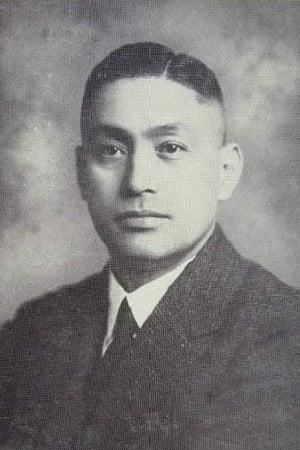
Japanese social activist, business leader, writer, art patron, and occasional actor. In the West he is best known for his cameo appearances in several of the last films directed by Yasujiro Ozu
Gender: Male
Born On: 15-Feb-1894
Last Info Sync: 3/25/2024 7:21:00 AM
Tsûsai Sugawara's Filmography on TV
List of programs starring Tsûsai Sugawara on tv. Programs are sorted in order of last seen on tv. Last updated: Jan 19, 2025 12:52 PM
Tardo autunno (1960)
A woman and her daughter are each forced to contend with an increasing pressure to marry, particularly from three men who knew her late husband.
Buon giorno - Buon giorno (1959)
A lighthearted take on director Yasujiro Ozu’s perennial theme of the challenges of intergenerational relationships, Good Morning tells the story of two young boys who stop speaking in protest after their parents refuse to buy a television set. Ozu weaves a wealth of subtle gags through a family portrait as rich as those of his dramatic films, mocking the foibles of the adult world through the eyes of his child protagonists. Shot in stunning color and set in a suburb of Tokyo where housewives g
Buon giorno (1959)
A lighthearted take on director Yasujiro Ozu’s perennial theme of the challenges of intergenerational relationships, Good Morning tells the story of two young boys who stop speaking in protest after their parents refuse to buy a television set. Ozu weaves a wealth of subtle gags through a family portrait as rich as those of his dramatic films, mocking the foibles of the adult world through the eyes of his child protagonists. Shot in stunning color and set in a suburb of Tokyo where housewives g
Fiori d'equinozio - Fiori d'equinozio (1958)
Wataru Hirayama outwardly liberal views on marriage are severely tested when his daughter declares that she is in love with a musician and is adamant to lead life her own way, instead of agreeing to an arranged marriage. Outwitted by his female relatives, Hirayama stubbornly refuses to admit defeat.
Fiori d'equinozio (1958)
Wataru Hirayama outwardly liberal views on marriage are severely tested when his daughter declares that she is in love with a musician and is adamant to lead life her own way, instead of agreeing to an arranged marriage. Outwitted by his female relatives, Hirayama stubbornly refuses to admit defeat.
Crepuscolo di Tokyo - Crepuscolo di Tokyo (1957)
Two sisters find out the existence of their long-lost mother, but the younger cannot accept the fact that she was abandoned as a child.
Inizio di primavera (1956)
A young salary man and his wife struggle within the confines of their passionless relationship while he has an extramarital affair.
Inizio di primavera - Inizio di primavera (1956)
A young salary man and his wife struggle within the confines of their passionless relationship while he has an extramarital affair.
